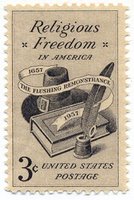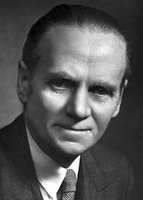
"Silent Night" is a traditional Christmas song. My earliest memory of it is from the television show Rin Tin Tin, when the cavalry sang it during an episode that ran, surprisingly, near Christmas.
The first performance of Silent Night was on the 25th in 1818 when a choir sang it during Christmas services in the Church of St. Nikolaus in Oberndorf, Austria. The song quickly became a staple of the Christmas season. During World War I, a war that probably set the standard for brutality in the modern era, on Christmas Day in 1914, the song was sung simultaneously, in English and German, by the troops facing each other near Ypres, Belgium. When they finished singing, the soldiers from both sides exchanged gifts with their adversaries. After gathering, the Germans and the Allies also conducted a group reading of the 23rd psalm. Sadly, after burying their dead it was back to business as usual for both sides. Currently, in Dallas, Texas, the men's chorus of the Turtle Creek Chorale traditionally ends its annual Christmas season concerts by singing the first verse of the carol, and then signing the verse in complete silence.
 You first met Boies Penrose on November 1, 1860, his birthday. I offered the quote, from a speech he had delivered in 1896: “I believe in the division of labor. You send us to Congress; we pass laws under which you make money…and out of your profits, you further contribute to our campaign funds to send us back again to pass more laws to enable you to make more money.” Mr. Penrose died on the 31st in 1921. I generally don’t like to repeat myself, but Penrose gave us another quote that I liked so much that I am going to use him again. The quote echoes my own feelings about politics in general and politicians in particular. To coin a phrase, he hit the nail on the head when he said, “Public office is the last refuge of a scoundrel.”
You first met Boies Penrose on November 1, 1860, his birthday. I offered the quote, from a speech he had delivered in 1896: “I believe in the division of labor. You send us to Congress; we pass laws under which you make money…and out of your profits, you further contribute to our campaign funds to send us back again to pass more laws to enable you to make more money.” Mr. Penrose died on the 31st in 1921. I generally don’t like to repeat myself, but Penrose gave us another quote that I liked so much that I am going to use him again. The quote echoes my own feelings about politics in general and politicians in particular. To coin a phrase, he hit the nail on the head when he said, “Public office is the last refuge of a scoundrel.”







